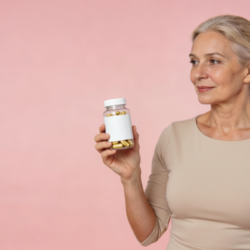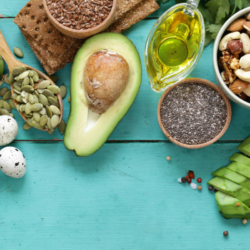The menopause is a natural stage in a woman’s life, often accompanied by a range of symptoms, including musculoskeletal pain. This pain can affect muscles, joints and soft tissues, impacting on quality of life. Here are some technical approaches to managing and relieving this pain.
Understanding musculoskeletal pain associated with the menopause
The menopause causes a drop in oestrogen levels, which can lead to inflammation and reduced bone density, contributing to musculoskeletal pain. Commonly affected areas include the back, knees, shoulders and hands.
Medical approaches to relieving musculoskeletal pain
- Hormone replacement therapy (HRT ) HRT can be effective for some women in reducing menopausal symptoms, including joint and muscle pain. Consult a healthcare professional to discuss the benefits and risks.
- Painkillers Drugs such as non-steroidal anti-inflammatory drugs (NSAIDs) can help reduce pain and inflammation. Opioids may be prescribed for severe pain, but their use must be strictly supervised.
Recommended physical exercises to relieve musculoskeletal pain
- Muscle strengthening Muscle strengthening exercises can help support joints and reduce pain. Exercise programmes should include activities that target the major muscle groups.
- Stretching Regular stretching can improve flexibility and reduce muscle tension. Activities such as yoga or Pilates are particularly beneficial.
- Aerobic exercise Aerobic exercise, such as walking, swimming or cycling, can improve circulation and reduce pain. These activities should be adapted to your fitness level and done regularly.
Adapting your lifestyle
- A balanced diet A diet rich in essential nutrients is crucial to bone health. Calcium and vitamin D are essential for bone and joint health.
- Hydration Drinking enough water is essential for keeping joints and tissues supple.
- Quality sleep Restorative sleep helps muscle recovery and pain management. Establish a regular sleep routine and create an environment conducive to rest. Consider food supplements that help combat insomnia: EPS Mélisse Pileje extrait fluide, Bio-Life Be-Life Relax Night Sommeil Paisible, Nutreov Ménophytea Équilibre Sommeil 30 tablets, Aubépine Bourgeon Macérât Bio Biogemm 30 ml
Food supplements to relieve musculoskeletal pain associated with the menopause
Food supplements can play a significant role in managing musculoskeletal pain associated with the menopause. They provide essential nutrients that can compensate for nutritional deficiencies and improve joint and muscle health.
1. Calcium and Vitamin D
Calcium is crucial for maintaining bone health. The menopause can lead to a reduction in bone density, increasing the risk of osteoporosis. Vitamin D is necessary for calcium absorption and plays a role in muscle function. Adequate calcium and vitamin D supplementation can help strengthen bones and prevent fractures.
2. Magnesium
Magnesium is an essential mineral that helps relax muscles and reduce muscle cramps. It is also involved in regulating electrolyte balance, which is crucial for muscle function. Moreover, electrolyte balance is essential for preventing muscle cramps and joint pain associated with the menopause, by ensuring adequate hydration and optimal muscle function.
Women in the menopause can benefit from magnesium supplements to reduce musculoskeletal pain.
3. Omega-3
Omega-3 fatty acids have anti-inflammatory properties that can help reduce inflammation and joint pain. Common sources of omega-3 include fish oil and flaxseed. Omega-3 supplementation may be beneficial for women suffering from joint pain during the menopause.
4. Collagen
Collagen is a structural protein that is important for healthy joints and connective tissue. Collagen production declines with age, which can contribute to joint pain. Collagen supplements can help maintain joint integrity and reduce pain.
5. Phytoestrogens
Phytoestrogens are natural compounds found in certain plants that can mimic the effects of oestrogen in the body. They can help balance hormone levels during the menopause and reduce musculoskeletal symptoms. Common sources of phytoestrogens include soya and red clover.





